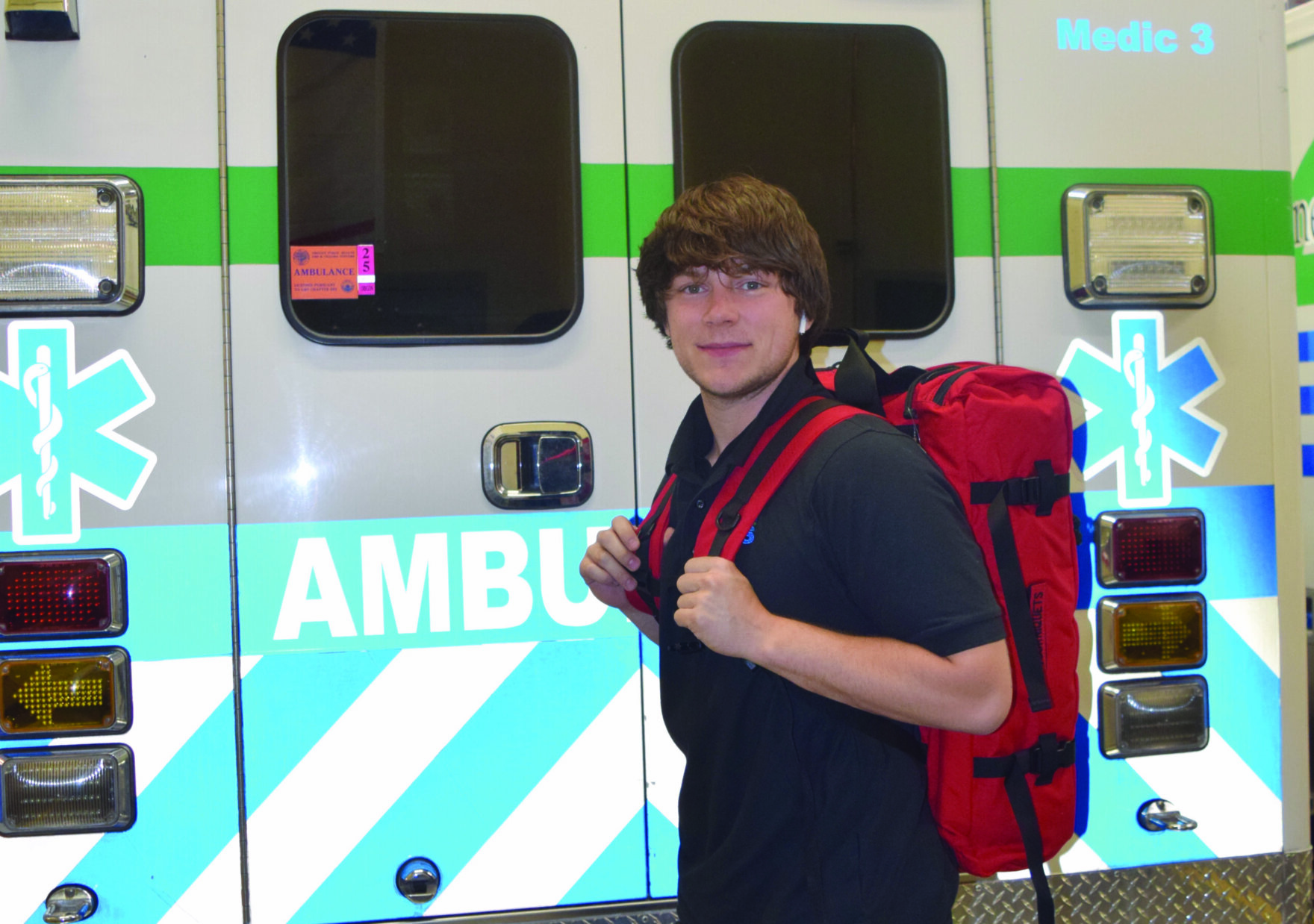
17 Jul Hospital receives grant for emergency equipment
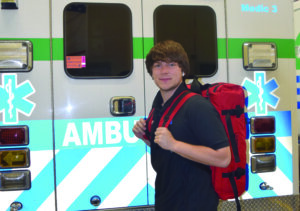
Emergency Medical Technician (EMT) Brennick Bowman modeling one of the Warrior Aid & Litter Kits (WALKs). These aptly named supply kits can be carried like backpacks for mobile response during Mass Casualty Incidents (MCIs).
Harney District Hospital (HDH) recently received an $8,640 grant from Oregon Health Authority to purchase supplies needed to expedite response during Mass Casualty Incidents (MCIs). The term “MCI” is used to describe any incident in which the number and/or severity of casualties could easily overwhelm available resources, including medical equipment and personnel.
The grant was used to purchase four MCI Warrior Aid & Litter Kits (WALKs), three MCI triage kits, three Triage/Decon tape kits, and 34 bleeding control kits.
Aptly named WALKs, these supply kits can be carried like backpacks for mobile response during an MCI. The WALKs will be stored in the hospital’s Emergency Medical Services (EMS) Department, so EMS staff can easily grab them on their way to an MCI. When necessary, EMS staff will use the WALKs to treat, or stabilize, several casualties on scene or in transit to the hospital. Among the many supplies included in these kits are chest seals for punctured lungs, tourniquets to stop bleeding, combat gauze to help control bleeding, nasopharyngeal airways to assist with breathing, and quick litters to carry patients.
“The MCI-WALK kits house an array of commercial treatment devices that can be deployed by any personnel who have training in trauma medicine, STOP THE BLEED®, or first aid classes,” HDH EMS Department Manager Cliff Stoutenburg said. Noting that the WALKs closely mirror the trauma kits that were purchased by the Harney County Sheriff’s Office, he added, “This will allow a seamless transition into our current countywide operations.”
The MCI triage and triage tape kits include triage tags, colored tape, and other supplies used to signify a patient’s level of injury. The goal is to separate patients who are badly injured from those with lesser injuries, so healthcare professionals can prioritize treatment. These kits also include colored vests that can be worn by EMS and other personnel assigned to caring for specific patients. This will allow emergency responders to deploy Simple Triage and Rapid Treatment (START) procedures and create a uniform, color-coded staging area.
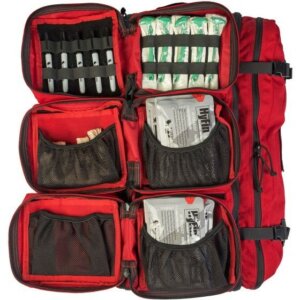
A close-up of the supplies contained within a WALK.
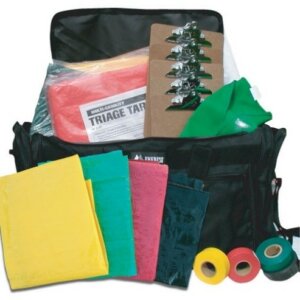
A close-up of one of the triage kits. These kits can be used to signify patients’ level of injury during an MCI
Each bleeding control kit comes with a succinct instruction card, tourniquet, small permanent marker (used to record when the tourniquet was placed), trauma dressing, wound-packing gauze, gloves, trauma shears (specialized scissors), and a survival blanket to help keep the patient warm. The HDH EMS Department will keep two of the bleeding control kits, one for each of its primary ambulances. Another kit will be placed with the Burns Fire Department. The ultimate goal is to equip every emergency-response vehicle in the community with a bleeding control kit. HDH EMS plans to collaborate with local emergency responders to ensure they receive the necessary training.
Items purchased using funds from the Oregon Health Authority (OHA) grant will be used to replace the MCI trailer, which has been stored on hospital property for more than a decade. Although well-stocked with lifesaving equipment, the MCI trailer is difficult to deploy, due to its size and the time it takes to hook it up and transport it to the scene. A significant amount of ongoing training is also required to use the equipment within the trailer proficiently. Fortunately, the MCI trailer found a good home with Chiloquin Fire & Rescue, which is located on Highway 97 (about 30 miles north of Klamath Falls).
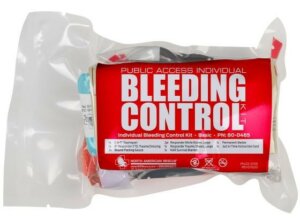
A close-up of one of the bleeding control kits.
The OHA grant came to Harney District Hospital through the Oregon Region 7 Healthcare Security and Preparedness Coalition with help from HDH Safety & Security Manager Perrilyn Wells. The hospital appreciates Wells, OHA, and the Region 7 Coalition for putting accessible, lifesaving equipment in the hands of our community’s emergency responders.
“Ultimately, these mobile kits are simple to deploy within a resource-limited county and require very little continued training to ensure comfortability of deployment and operation,” Stoutenburg said. “HDH EMS is extremely excited to have had the opportunity to collaborate with Perrilyn and the state of Oregon to acquire a grant for them.”

No Comments